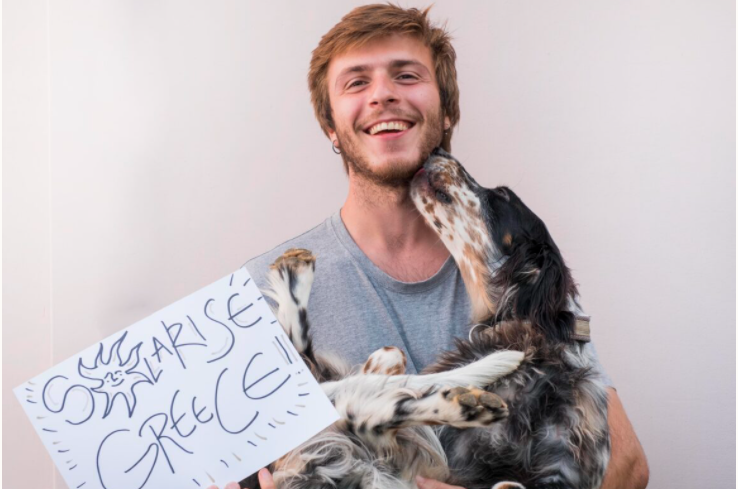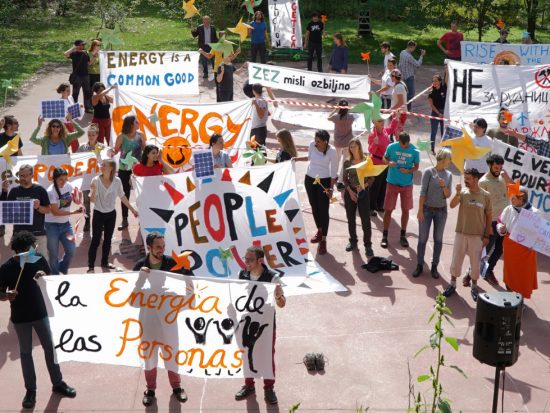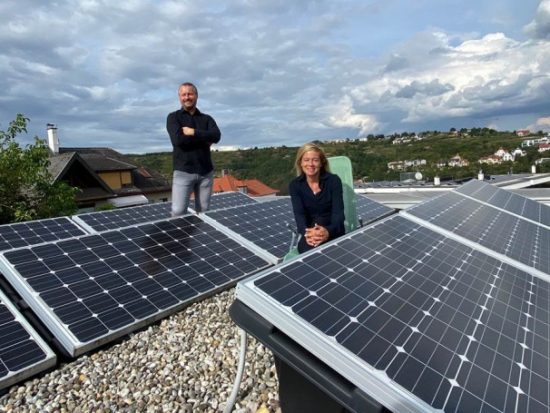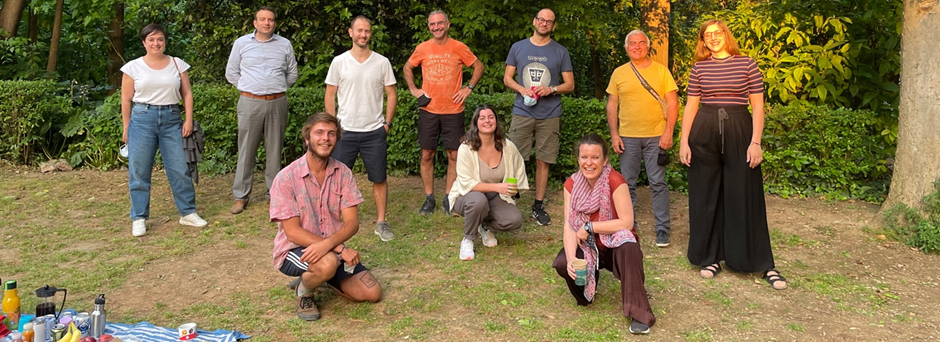Across Europe, communities and individuals are taking climate action into their own hands.
They are participating and moving forward the energy transition. They are part of a huge movement of energy communities.
Hyperion, Greece’s first non-profit solar energy community, is one such example.
Not only would their project tap the power of the Greek sun. It would tackle real issues affecting citizens, like energy poverty.
Hyperion solar community
After Greece set a legal framework in 2018 to boost citizen and community renewable energy and give rights to communities to participate in the energy transition – alongside similar moves by the EU in its renewable directives – citizens in Athens decided to take energy back into their own hands.
Hyperion currently consists of 32 members of various backgrounds – from students to engineers to accountants. The project is building up a solar park in Athens.
It uses a virtual net-metering scheme, meaning that the energy they generate is fed into the grid, while Hyperion’s members see get a corresponding reduction in ther energy bills, corresponding to the energy they produced. This is particularly important in Greece, where a large segment of the population faces varying degrees of energy poverty and rising energy prices.
Here’s an interview with Hyperion co-founder, Chris Vrettos.

“Energy Communities should prioritise social and ecological goals over private profit and a new way of organizing based on the social and solidarity economy. Mutual solidarity can facilitate the transfer of resources, capacities and knowledge, in order to gradually build independence from market forces.”
How did Hyperion start?
“In 2019, a handful of individuals in Athens, who for years have been preaching the message of energy democracy, seized the opportunity and decided to ‘walk the walk’. We wanted to actively accelerate the clean energy transition, experiment with cooperative governance, tackle energy poverty, and reduce reliance on wildly fluctuating market energy prices dominated by fossil fuels.“
What kind of difficulties have you faced?
“One of the main barriers for energy communities in general is the issue of financing. Hyperion members organized a small crowdfunding campaign to include 2 energy vulnerable households in the community for free. This is really important in Greece, where there is high energy poverty.
“We were helped by Coopernico, one of the largest Portuguese energy cooperatives, who contributed to our crowd-fund, and gave great advice.”
What other obstacles are you having to overcome?
“We are constantly navigating barriers: changes in legislation, financial – raising the capital to cover the upfront investment, distrust in cooperatives, and long and unexpected bureaucratic procedures. But we’re learning and evolving. A key lesson is to be patient and build trust through constant transparency; as well as to build a shared vision about the goals and scope of the community early on.”
Can Hyperion be scaled up?
“Yes! We are already planning Hyperion II, a 500kWp solar park which will involve more than 40 energy vulnerable households and 160 total members. We’ve secured funding from an impact fund, and have already contacted hundreds of potential interested members, from NGOs to arts organizations, municipalities and SMEs. We are currently looking for space, either on rooftops or in combination with agricultural production, which would reduce land-use competition. This can be another important factor in building social acceptance.”
What are your tips for others wanting to start a community energy initiative?
“First of all, reach out to existing community energy groups. Study the legislation of your country to see what support for community energy projects is like – both RESCoop and Friends of the Earth Europe have created tools analysing EU countries’ legislation. Start small, with a dedicated group of people and form a common vision.
“Community energy is an inherently political processes, which seeks to upend entrenched market power. So be prepared to face obstacles and conflicts. But be patient and build trust. It’s all worth it in the end!”
Resources:
- Our Community energy guide
- Find other energy communities with RESCoop’s Network-Map
- RESCoop and Friends of the Earth Europe have created tools analyzing EU countries’ legislation – see Community Power Coalition, and RESCoop
Related Content
We think you’d also like:

Community energy
We’re tackling climate breakdown by powering the transition away from fossil fuels and towards community-owned renewable energy.

Frontlines of Hope
Meet the people and communities coming together across Europe to fix climate breakdown.







